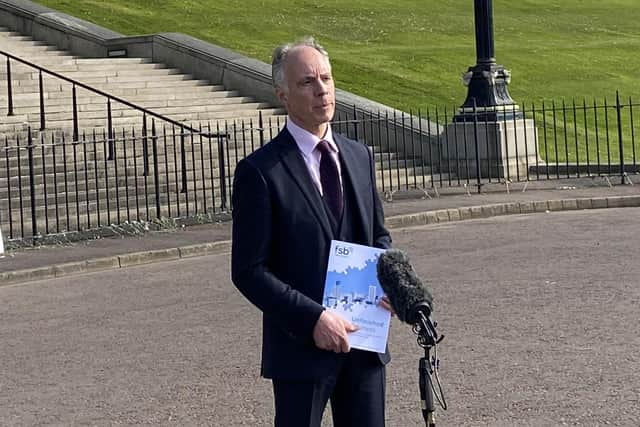‘Get laser focused’ on agreeing Protocol solutions
and live on Freeview channel 276
Following publication of the UK government’s Bill that aims to amend the operation of the Northern Ireland Protocol, FSB NI has called on both sides to work collectively to overcome the problems, rather than seeing it as a pure negotiation.
Head of FSB NI Roger Pollen said he is hopeful that a resolution to the dispute between the EU and UK government can be secured in order to help the significant minority of small businesses that are struggling with aspects of the Protocol.
Advertisement
Hide AdAdvertisement
Hide AdHe continued: “Based on many recent conversations we have had with party leaders in Northern Ireland, as well as with the EU and UK government, we believe there is a degree of common ground.


“There is a widely held acknowledgement that the Protocol is not working as it should, that it needs to be fixed, and that solutions have been proposed that should now be progressed.
“We very much hope that a successful outcome will be achieved through dialogue rather than legislation and that it should be in a spirit of common purpose, rather than pure negotiation, which suggests a trade-off rather than focusing on getting the very best outcome.
“With so much at stake amid the continuing paralysis of politics at Stormont, it is essential that leaders in London and Brussels get laser-focused on fixing the issues as a matter of priority, as delay simply sees opportunity squandered and unnecessary damage inflicted.”
Advertisement
Hide AdAdvertisement
Hide AdContinuing, Mr Pollen, added: “Whilst parts of the Protocol are clearly working for sectors such as the dairy and meat processing industries, we need to ensure that it is reviewed and improved so that the significant minority of businesses that have been negatively impacted by it are no longer so disadvantaged.”